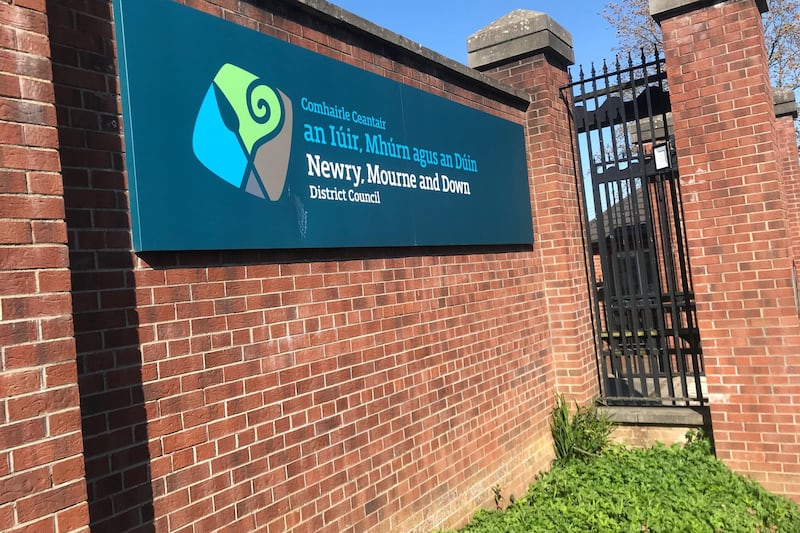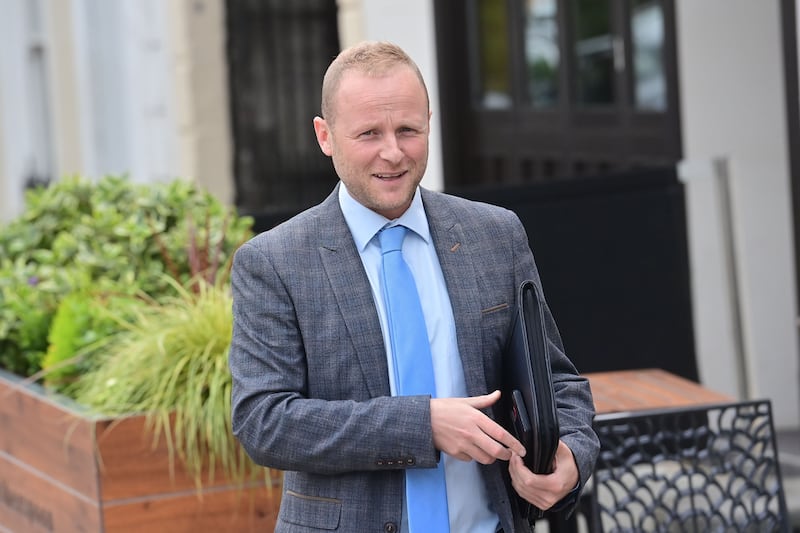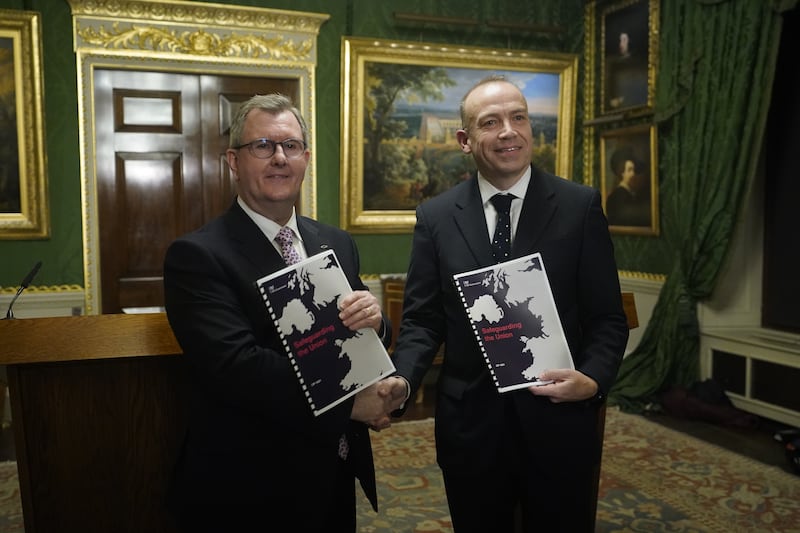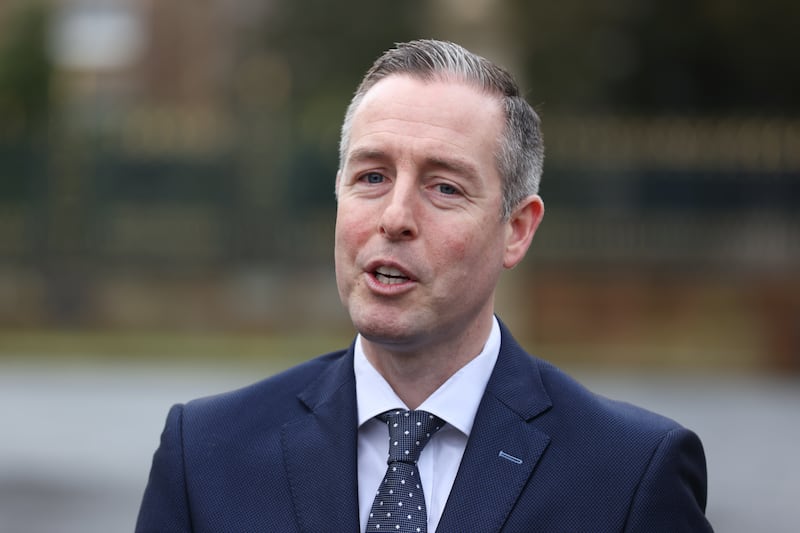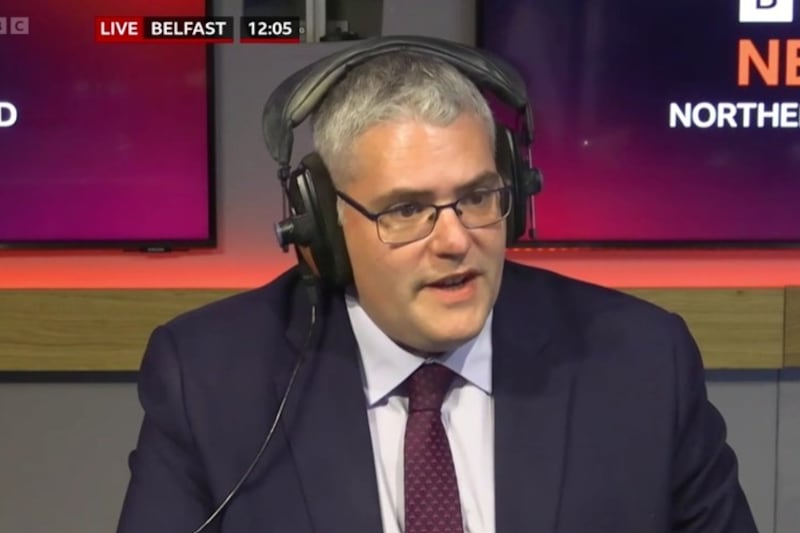The DUP's annual conference at the weekend was a decidedly more downbeat affair than last year, when an exuberant party leader Arlene Foster claimed that Brexit presented the biggest economic opportunity for the UK in decades.
Twelve months on, Mrs Foster revised her position substantially and said Brexit was actually "perhaps the most substantial and complex process the government and parliament had undertaken in the modern political era''
There was certainly no repetition of the `Arlene's on fire' dancing escapades which in many ways summed up the giddy mood of the DUP faithful at their 2016 gathering.
Mindful of the scrutiny from a substantial number of visiting English journalists on Saturday, the party managed to keep its more outspoken members like Gregory Campbell well away from the podium and even dropped the familiar closing song from William McCrea.
However, the London Independent still characterised the occasion as a `blizzard of weird Union Jack waving nationalism’ and compared the DUP unfavourably to Nigel Farage’s UKIP.
The deal which has kept Theresa May in power received considerable attention, with speakers anxious to praise the DUP’s strong showing in June’s UK general election but much more reticent about the outcome of the Assembly poll three months earlier.
On that occasion, there can be no doubt that the DUP’s involvement in the Renewable Heat Incentive (RHI) scandal which is now the subject of a public inquiry had a major impact on the result.
RHI was a key factor in the collapse of the devolved structures at Stormont, and there was little evidence at the conference that the DUP has a credible plan for restoring the institutions.
Mrs Foster is fully entitled to exploit her party’s present influence at Westminster but she will also be aware that the growing Brexit crisis contains all the elements required to abruptly bring down the Tory administration.
While she really needs to engineer her own return to the first minister’s office at Parliament Buildings, her sharp attack yesterday on the Irish minister for foreign affairs Simon Coveney indicated that she is still unable to come to terms with wider nationalist concerns.
In those circumstances, it is difficult to see how the stalemate at Stormont is going to be broken in the short term.


